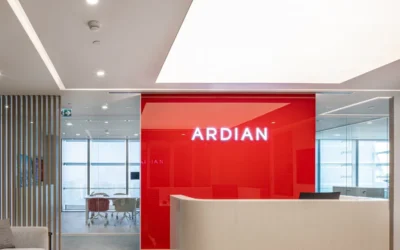“Hedge funds are certainly looking to capitalize on the enthusiasm for private equity,” says an EY partner.
Two Sigma, one of the world’s largest quantitative hedge fund managers, has raised $1.2 billion for its new private equity unit, Sightway Capital.
Sightway reached the final close of its first fund, Sightway Capital I, the firm said Tuesday. Commitments came from a “diverse group of institutional investors,” including Massachusetts’ public pension fund, which approved investing as much as $500 million with Sightway last year.
“With the closing of our first fund and the support of our new partners, we believe Sightway Capital is well positioned to build on the current momentum of our portfolio companies,” division CIO Wray Thorn said in a statement. “We plan to invest this additional capital to further scale our established platform company investments and to drive long-term value for our investors.”
Two Sigma first began exploring opportunities in private capital back in 2008, according to the Sightway website. The quant firm launched Sightway in January of last year as a way of “building on these established investment capabilities and continuing its differentiated investment approach.”
Two Sigma’s push into private equity reflects a larger trend of hedge fund firms diversifying with the hot asset class and other non-traditional strategies, according to EY. The consulting firm’s 2019 global alternative fund survey, published last week, found that 26 percent of hedge funds offered a private equity product.
“There is high investor appetite for these products,” said Ryan Munson, a partner in EY’s asset and wealth management practice. “Hedge funds are certainly looking to capitalize on the enthusiasm for private equity.”
While hedge funds in general have experienced a decline in popularity in recent years, private equity funds have been magnets for institutional capital. According to EY, private equity accounts for about a quarter of allocators’ alternatives portfolios, up from 18 percent in 2018. Hedge funds, by comparison, declined from 40 percent to 33 percent over the same period.
“In today’s environment, there’s a view that if you’re able to have a diversified portfolio of products to go to market with, that will help you attract a diversified base of investors and help with the overall performance of your firm,” Munson said. “I certainly think we’re going to continue to see this trend of managers not looking to be one-trick ponies but having variety of products.”
Source: Institutional Investor
Read other recent News
PAI Partners secures $4.2bn for Froneri with backing from Goldman Sachs and ADIA
PAI Partners secures $4.2bn for Froneri with backing from Goldman Sachs and ADIA PAI Partners has raised $4.2bn (€3.6bn) for its ice cream joint venture Froneri, bringing in Goldman Sachs Alternatives through a new single-asset continuation vehicle, while the Abu...
Competition brews in £2bn Costa Coffee sale as Bain Capital places bid
Competition brews in £2bn Costa Coffee sale as Bain Capital places bid Bain Capital’s Special Situations unit has entered the bidding for Costa Coffee, submitting a first-round offer for the UK’s largest coffee chain, which Coca-Cola is selling at an expected...
Ardian lines up €4bn auction of Grand Frais owner Prosol as CD&R shows interest
Ardian lines up €4bn auction of Grand Frais owner Prosol as CD&R shows interest Ardian is preparing to launch a formal auction for French food retailer Prosol, in a deal that could value the business between €3bn ($3.5bn) and €4bn, according to sources cited by...




